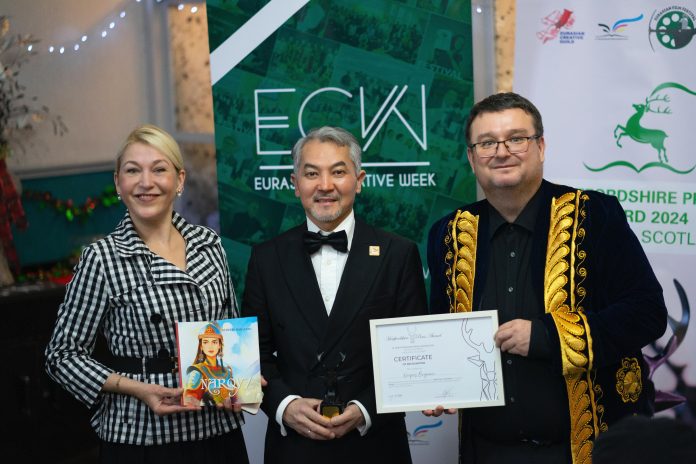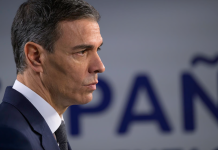From 28 to 30 November 2024, the XIII Eurasian Creative Week took place in Greenock, Scotland. This event gathered artists, writers, poets, diplomats, and creative figures from 15 countries, including Canada, France, Russia, Kazakhstan, Kyrgyzstan, Belarus, Israel, Uzbekistan, Tajikistan, Scotland, England, and Ukraine. The festival featured exhibitions, book presentations, an award ceremony, and a film screening.
Opening Day Eurasian Creative Week began on 28 November at the Beacon Arts Centre, West Scotland’s main cultural hub. The opening day showcased paintings from the art catalogue ‘The Great Steppe Treasure’ by artists such as Maria Muchinskaya, Seidbek Atambayev, Polina Lakhtina, Shaizada Baikenova, and Larisa Pak. Works by Oksana Zhukova, Timur Akhmedjanov, Anna Gharib, and Anastasia Kalinovskaya were also presented. Attendees viewed a video message from art curator Klavdia Kuvshinova, writer Alikhan Zhaksylyk, and public figure Nurym Taybek. The evening featured an author’s meeting with ECG Guardian Alexander Kazarnovsky, who discussed his art and read from his book ‘War will show the plan.’
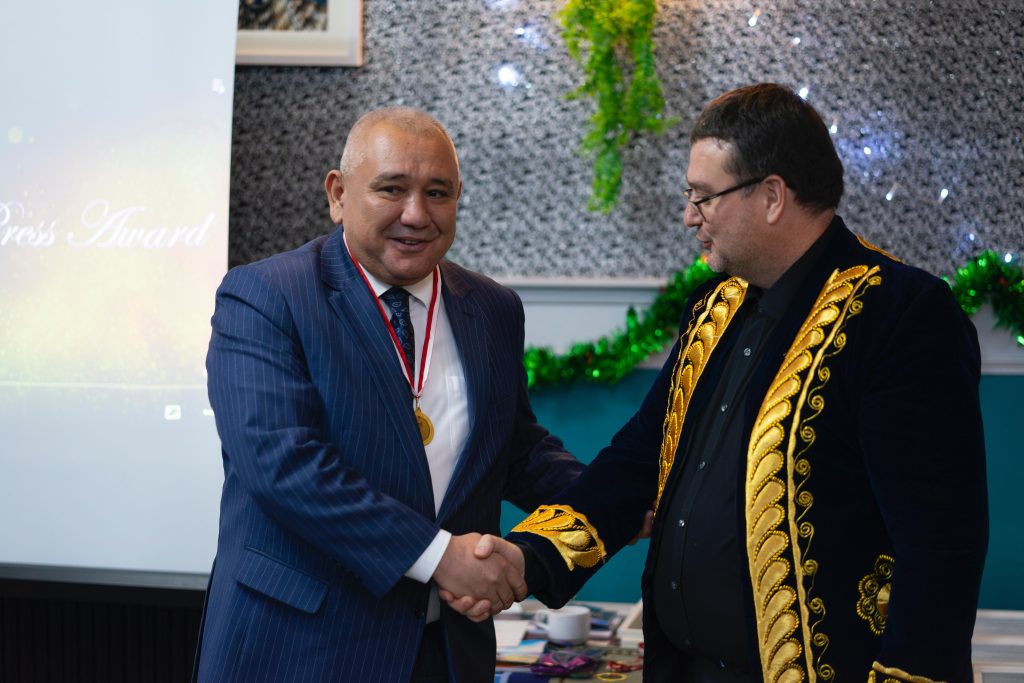
Continued Cultural Programme On 29 November, the cultural programme continued at the OYO Gin House Hotel with an art exhibition and author meetings. One of the most anticipated events was the presentation of books by Hertfordshire Press, published between 2022 and 2024. Editor Laura Hamilton and translator Anton Kovalenko presented ‘Zinziver,’ a collection of novels and short stories by Viktor Slipenchuk. The premiere of a unique film project, the first film created with artificial intelligence technologies based on Viktor Slipenchuk’s poem ‘Chingis-Khan,’ also took place, capturing the audience’s interest.
Award Ceremony and Highlights The festival featured new issues of OCA magazine, dedicated to Jizzakh, one of Uzbekistan’s fastest-growing regions. OCA People celebrated its anniversary with a special edition featuring 40 outstanding personalities, including Natasha Hart HBE. The main event on 29 November was the Hertfordshire Press Award, the Jonathan Fryer Medal, and the Barbara Yurkowska-Nawrocka Medal. The ceremony honoured artists who have contributed to cultural exchange in the Eurasian region, supporting Eurasian Creative Guild projects for children with autism.
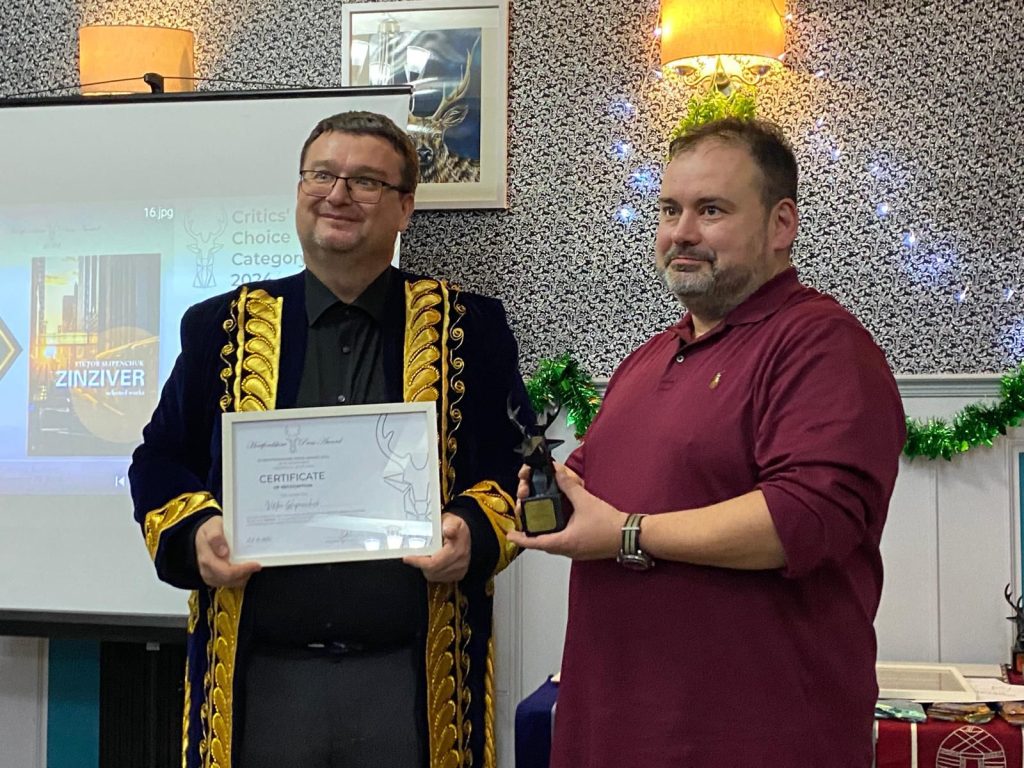
Award Winners
- Bestseller category: ‘War will show the plan’ by Kazarnovsky Alexander (Israel)
- Gold Certificate of Achievement: Timur Akhmedjanov (Uzbekistan) for ‘Elish and the Wicker Tale’
- Critics’ Choice category: ‘Zinziver’ by Viktor Slipenchuk (Russia)
- Best Adaptation for Children: Gulchehra-begim Makhmudova (Uzbekistan) for ‘The Legends Of The Great Silk Road: Adventures Of The Spirit Of Time’
- Best Love Story: ‘Labyrinths of Loneliness’ by Gulsifat Shahidi (Tajikistan)
- Best Epic: ‘Narqyz’ by Nurpeis Baiganin
- Best Female Author: Marina Alyassova (Kazakhstan) for ‘Wise Tales For Children And Adults’
The Belarusian Embassy in the UK supplemented the cultural programme with an exhibition and a gala reception. Guests enjoyed traditional Belarusian dishes, and Consul Dmitry Kozlovsky gave an inspiring speech on cultural exchange’s importance in strengthening international ties.
Concluding the Event On 30 November, participants toured Greenock, exploring Scotland’s heritage and visiting the Watt Institution Museum. An exhibition of books and national art dedicated to the countries of Eurasia ran throughout the festival, showcasing works from Uzbekistan, Kazakhstan, Kyrgyzstan, and other countries, reflecting Eurasia’s cultural diversity and creative potential.
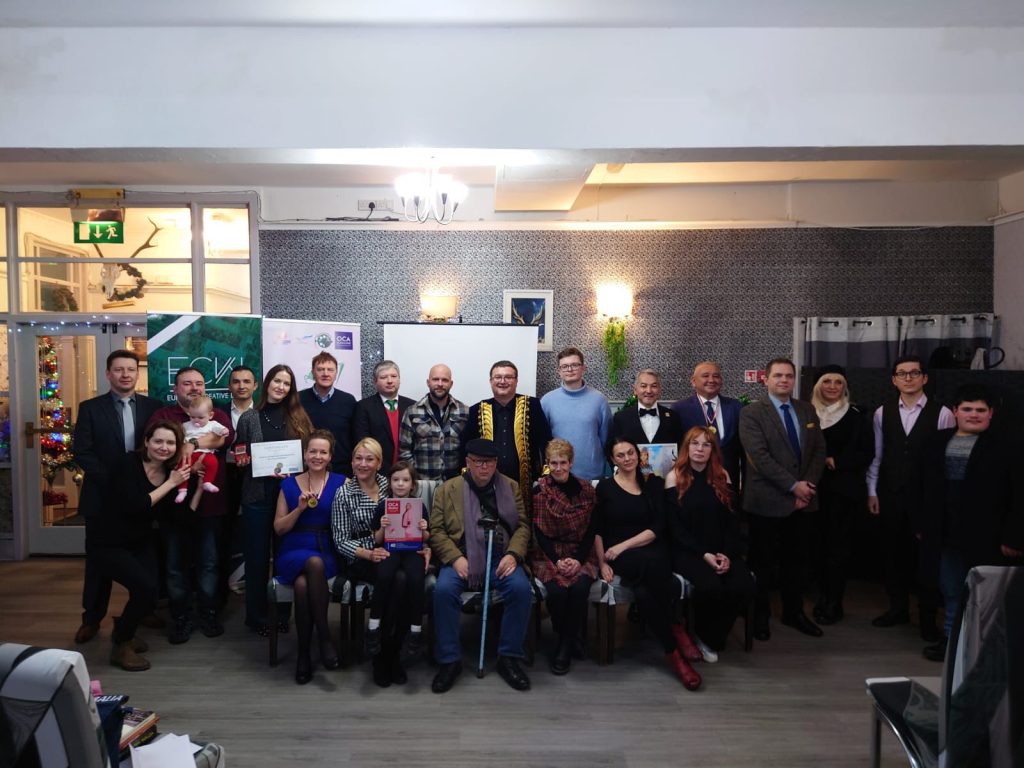
Looking Ahead The 8th Eurasian Culture Week in Scotland was a great success, fostering cultural ties and international cooperation. It showcased creativity and encouraged the exchange of ideas and experiences, strengthening international cultural cooperation. The next event, the 14th Open Eurasian Literature Festival & Book Forum, will be held in GE
Editor’s Opinion
The Colors of Central Asia in Scotland
Marat, a man of admirable dedication, finds solace only upon the completion of his undertakings. Tasks that may seem insurmountable to the common man are rendered feasible through Marat’s fervent passion and relentless effort. It is this ardor that has earned him his well-deserved recognition.
Marat has consistently toiled to introduce the rich culture of Central Asia to the world, be it through grand literary festivals or the esteemed Eurasian Creative Guild. With unwavering devotion, he painted the hues of Central Asia across the Scottish skies, uniting people from all corners of the globe to convey a message of love and solidarity through the medium of literature.



